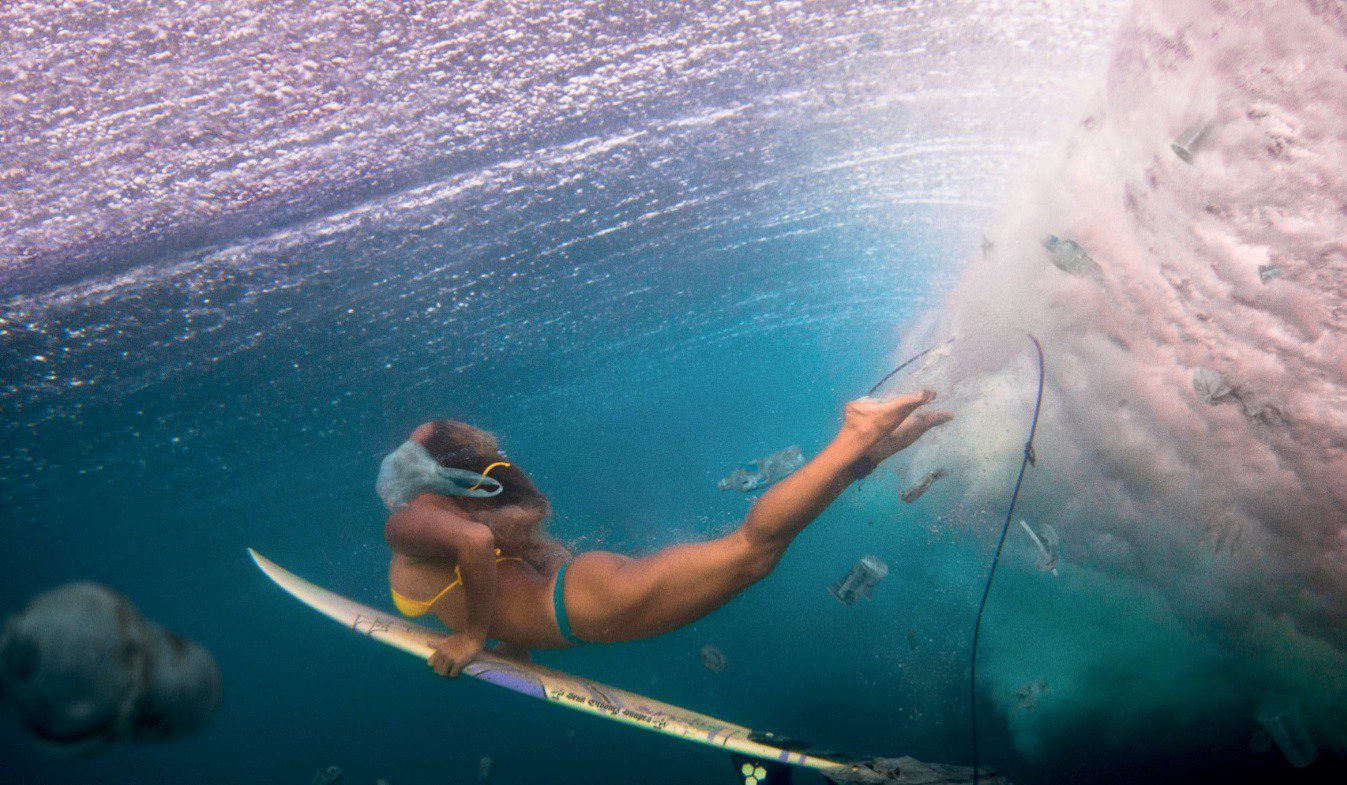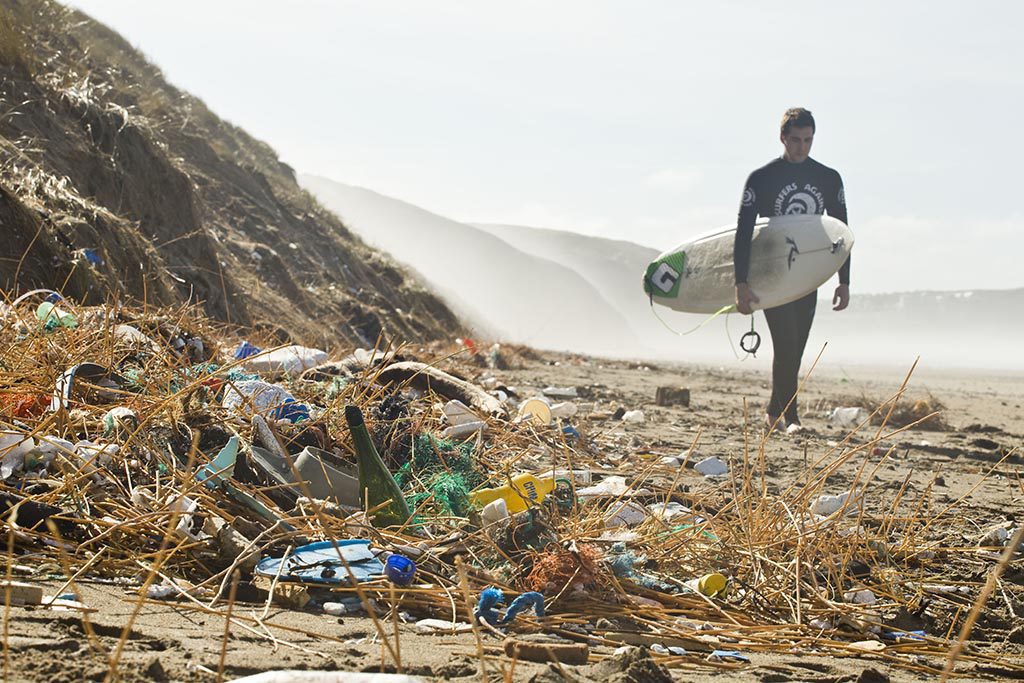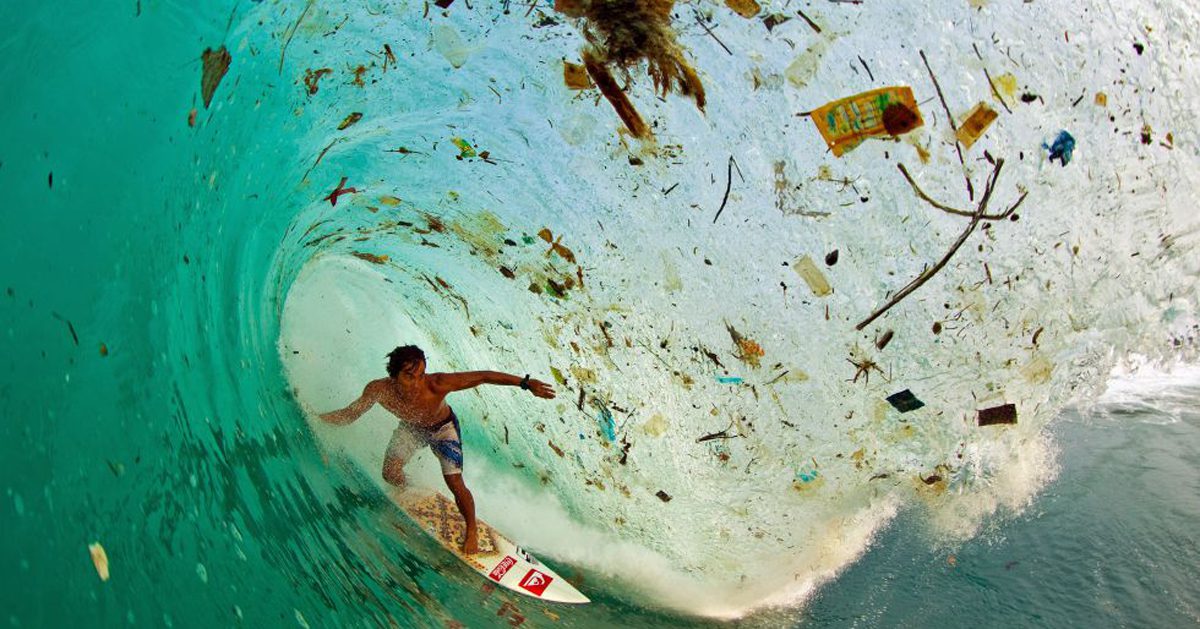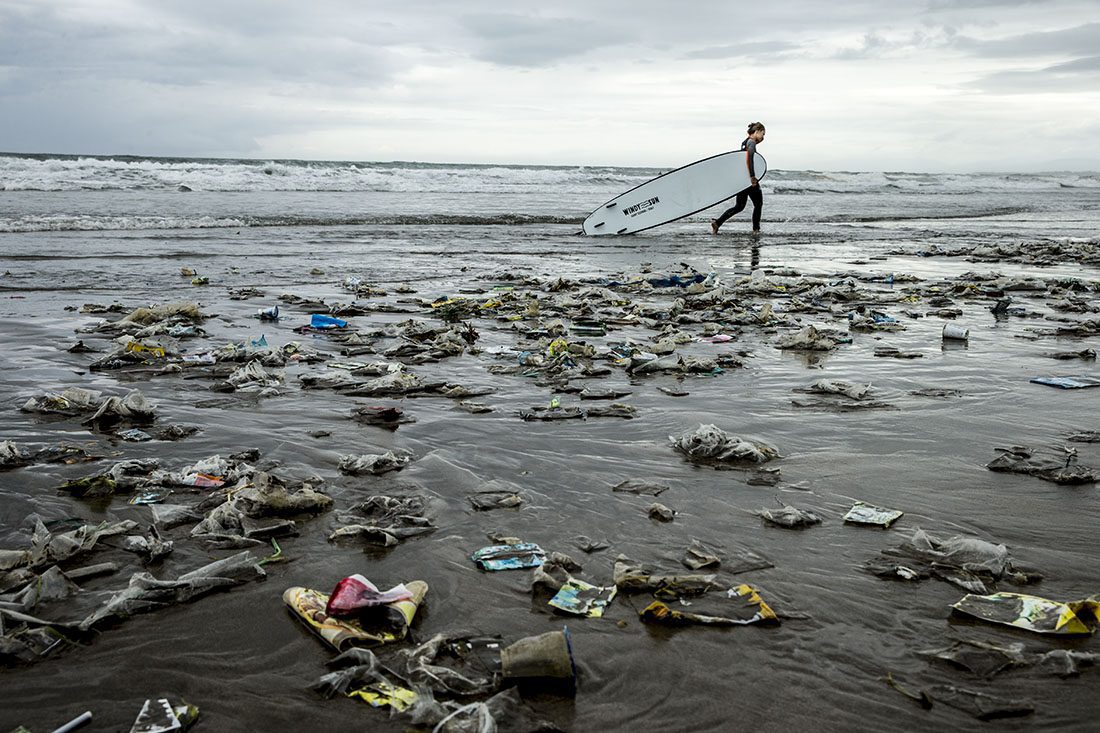
The Plastic Polution Problem
Ironically, plastic was originally an environmentally important concept. Developed in the early 20th century, it replaced ivory, horn, tortoiseshell and other animal products. Yet, by the mid-1960’s, plastic had progressed from being used solely for durable items to its current rife usage as a disposable item.Every piece of plastic produced still remains today somewhere on the earth, and it’s slowly choking our oceans.
From plastic shopping bags, to plastic water bottles, or plastic straws jammed in jazzy cocktails – we are furiously consuming and discarding something that is simply not easily degradable.It takes 450 years for a typical plastic bottle to break down completely. So, if a bottle is dropped in the ocean today, it could still be polluting the waters for our great-great-great-great-great-great-great-great-great-great-great-great-great-great-great-great-grandchildren. If it does degrade (perhaps more quickly in the ocean when exposed to a ton of light) into small plastic pieces, these are filled with toxic chemicals, ending up in the guts of animals, plants or us.
With 74% of all waste being found as plastic, this surging sea of debris drowning our planet is hard to ignore. For surfers who’ve been to Indonesia – the plastic problem is evident. These tropical spots were depicted in Gerry Lopez or William Finnegan’s biographies as pristine paradises, yet now we often surf amongst a debris of trash, or even get barrelled by a woeful wave filled with grim plastic objects.

So how can we help?Although recycling is great, it will never be able to combat the rapid expansion of the current consumption. To start a stand against plastic pollution, we can refuse, reduce and reuse
Refuse
Simply, say no. Kindly decline if someone dunks a plastic straw in a drink, or pops purchases in a plastic bag, or even hands out a cheap freebie plastic pen on the high street. The more we accept plastic, the more demand there is for this unsustainable product.
Reduce
Opt to put your fruit and veg straight in the trolley without bagging it in finickity plastic sacks. Choose products that aren’t wrapped up in a multitude of excess plastic. Try using an eco-friendly beeswax wrap rather than cling film. Simply put, try to reduce the amount of plastic in your life
Reuse
Bring your own cloth bag to the market, take a stainless steel food container for a lunch box or replace your plastic water bottles with a BPA free reusable bottle. This can be extended to reusing (and repairing) clothing. Admittedly, we all have too much, and once we tire of something, don’t bin it – donate it to a friend. If a top has a hole in it, hone your sewing skills, and stitch it up.
 Sure, it’s a small and simple start, but to avoid our oceans becoming more clogged with rancid rubbish, it’s of the utmost importance to say no to plastic.
Sure, it’s a small and simple start, but to avoid our oceans becoming more clogged with rancid rubbish, it’s of the utmost importance to say no to plastic.




Write a Comment
You must be logged in to post a comment.